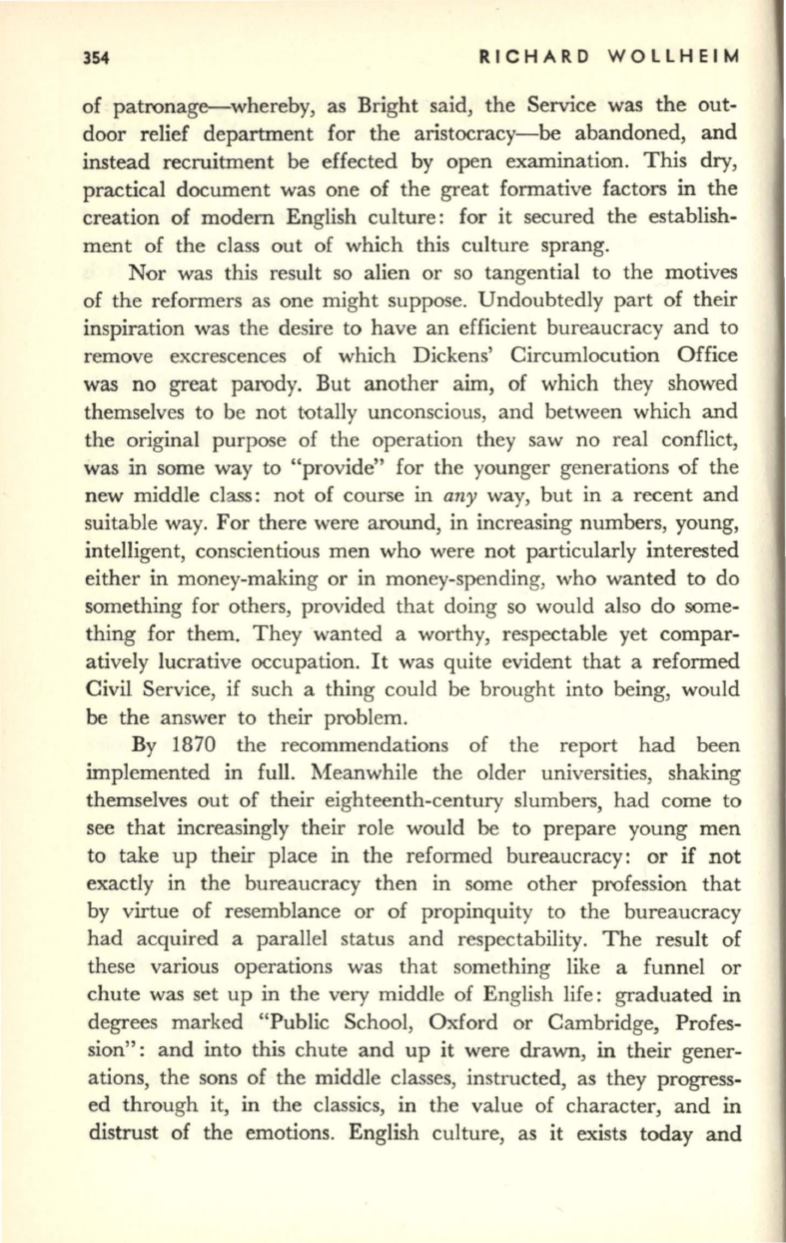
354
RICHARD WOLLHEIM
of patronage---whereby, as Bright said, the Service was the out–
door relief department for the aristocracy-be abandoned, and
instead recruitment be effected by open examination. This dry,
practical document was one of the great formative factors in the
creation of modem English culture: for it secured the establish–
ment of the class out of which this culture sprang.
Nor was this result so alien or so tangential to the motives
of the reformers as one might suppose. Undoubtedly part of their
inspiration was the desire to have an efficient bureaucracy and to
remove excrescences of which Dickens' Circumlocution Office
was no great parody. But another aim, of which they showed
themselves to be not totally unconscious, and between which and
the original purpose of the operation they saw no real conflict,
was in some way to "provide" for the younger generations of the
new middle class: not of course in
any
way, but in a recent and
suitable way. For there were around, in increasing numbers, young,
intelligent, conscientious men who were not particularly interested
either in money-making or in money-spending, who wanted to do
something for others, provided that doing so would also do some–
thing for them. They wanted a worthy, respectable yet compar–
atively lucrative occupation. It was quite evident that a reformed
Civil Service, if such a thing could be brought into being, would
be
the answer to their problem.
By 1870 the recommendations of the report had been
implemented in full. Meanwhile the older universities, shaking
themselves out of their eighteenth-century slumbers, had come to
see that increasingly their role would be to prepare young men
to take up their place in the reformed bureaucracy: or if not
exactly in the bureaucracy then in some other profession that
by virtue of resemblance or of propinquity to the bureaucracy
had acquired a parallel status and respectability. The result of
these various operations was that something like a funnel or
chute was set up in the very middle of English life: graduated in
degrees marked "Public School, Oxford or Cambridge, Profes–
sion": and into this chute and up it were drawn, in their gener–
ations, the sons of the middle classes, instructed, as they progress–
ed through it, in the classics, in the value of character, and in
distrust of the emotions. English culture, as it exists today and


